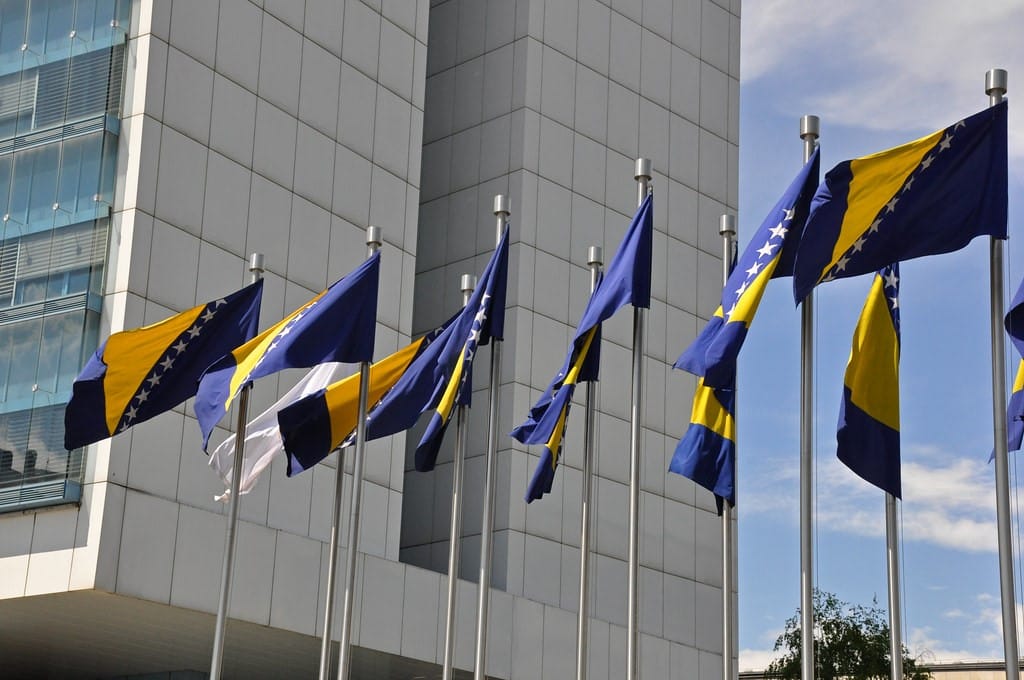The high representative for Bosnia-Herzegovina, Christian Schmidt, has warned about the risk that Bosnian Serbs pose to the stability of the country. In a report to the UN Security Council Schmidt has stated that unless the international community takes measures, the country could face the biggest existential threat of the postwar period. The warnings come after Bosnian Serb leader Milorad Dodik unveiled plans to withdraw from the state-level judicial, defence and taxation authorities.
Schmidt stated that if Dodik would move forward with his plans, this would undermine the state’s ability to function. He further argued that Dodik’s plans are ‘’tantamount to secession without proclaiming it.’’ Dodik himself has dismissed the report by the High representative as propaganda, stating that ‘’if we are seperatists, he is an occupier.’’
Increasing diplomatic efforts
As experts warn that a separation of Bosnia’s Serb entity could reignite ethnic violence, diplomatic efforts to resolve the crisis have been increasing. The EU and the US have been trying to decrease the tensions and seek compromise. On November 8, the US deputy secretary of State, Gabriel Escobar, held meetings with all members of Bosnia Herzegovina’s tripartite presidency. After the meeting he stated that the all parties agreed that there would be no war. He further said that Dodik may halt his secessionist plans and that he was open to discussing that ‘’withdrawing all of the legislation that would weaken the Bosnian central institutions”.
Dodik echoed Escobar’s statements saying that ‘’no one called for war as an option’’ and that there was a shared agreement that peace and stability should preserved. However, he was also clear about his intentions to push ahead with his plans to withdraw the Republika Srpska from national institutions. During a press conference he stated that: “I told Escobar that we would continue with our goal to send certain laws to the parliament of the Republika Srpska and withdraw our consent from issues such as the army, indirect taxation, the court system, and that we will draft new legislation in the next six months.’’
Sources: Balkan Insight Politico RFE/RL RFE/RL



